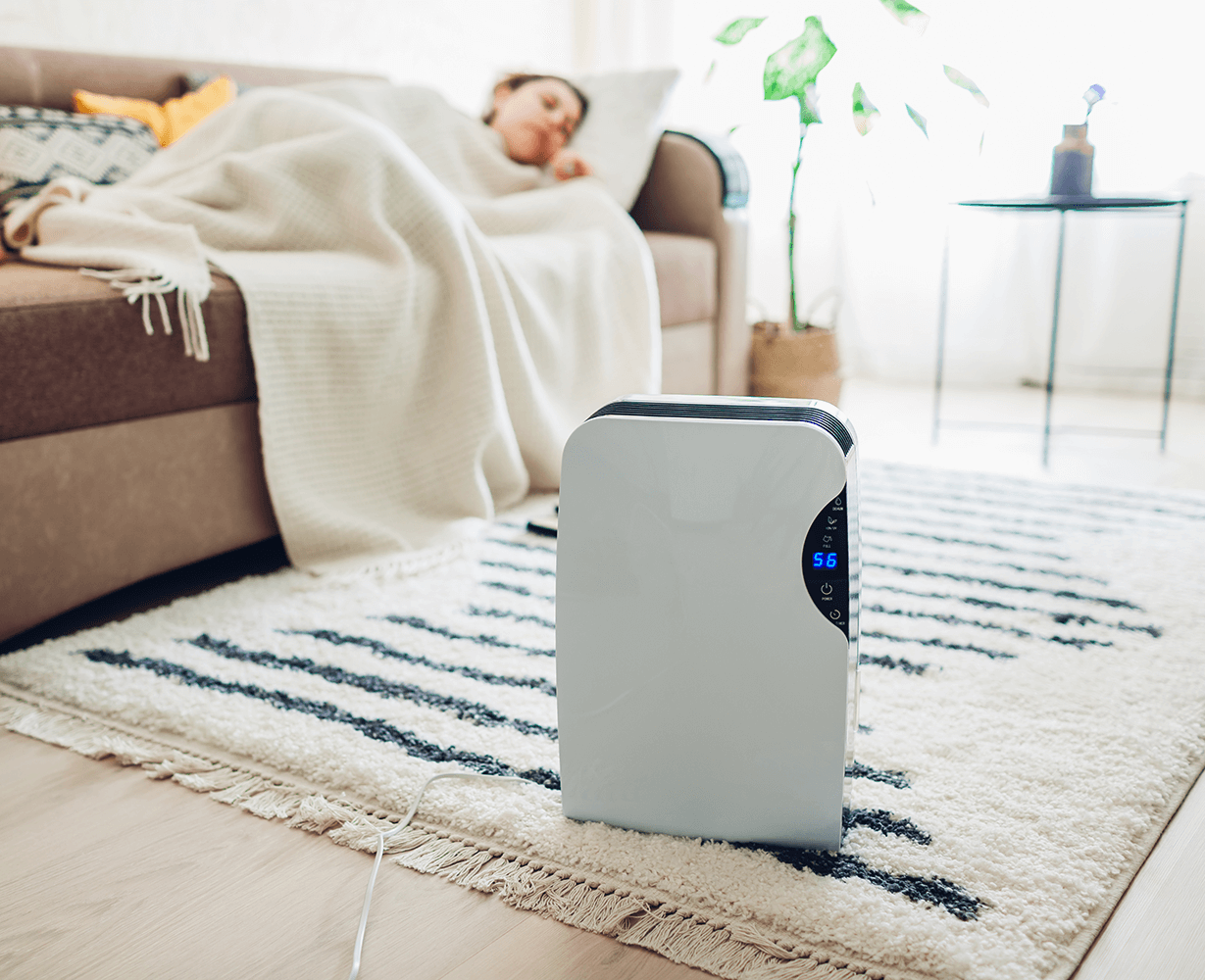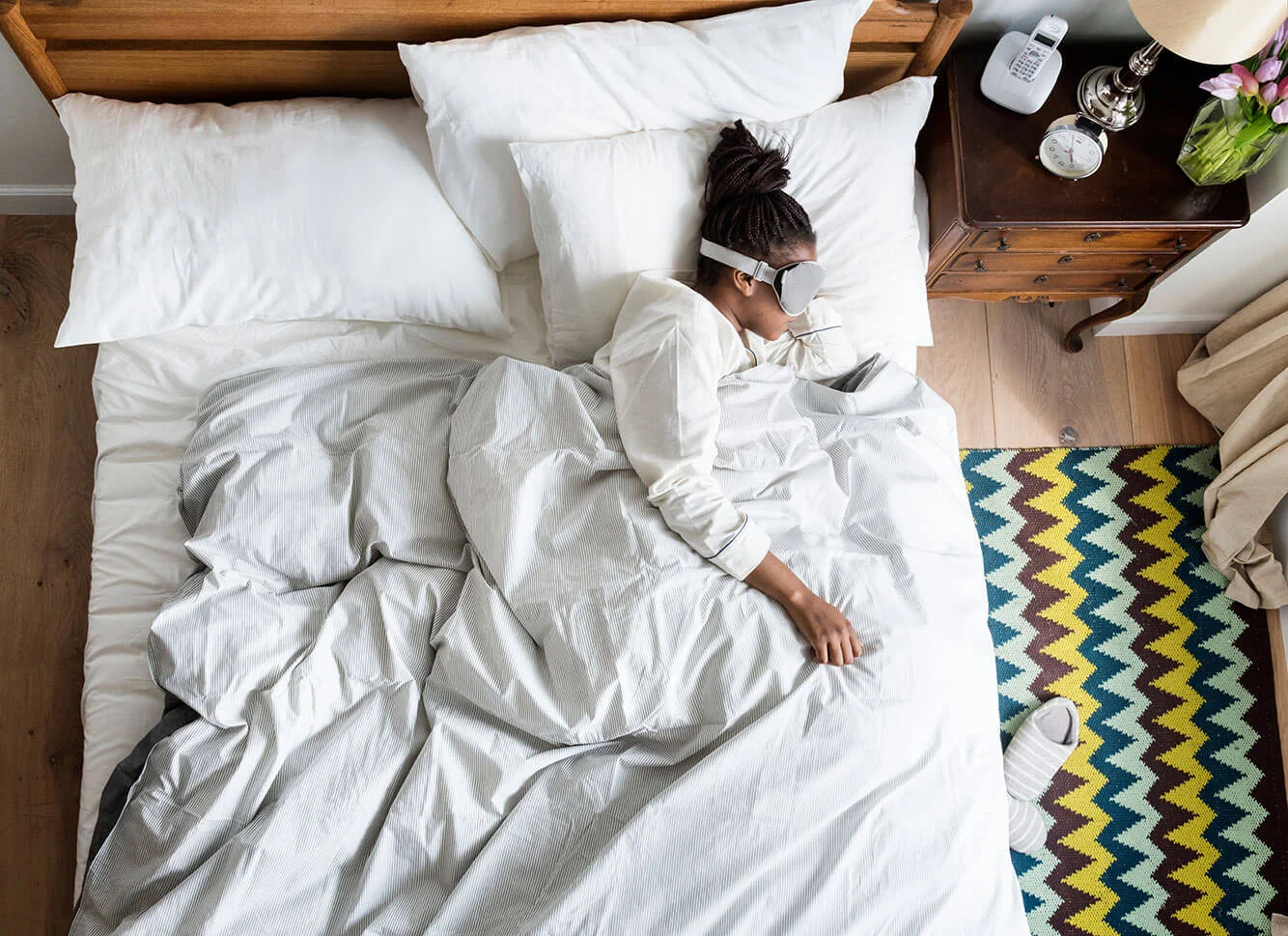Understanding and Knowing The Importance of Sleep
Sleep. It is something that we all do. Each and every night we all get some type of sleep—whether it is enough sleep or as high of quality of sleep that we want, that depends. While we all know we need sleep, and while many of us wish we had more time in the day to get sleep, most of us don’t know why we physically need to sleep.
This can seem rather alarming for an activity that the average human spends 1/3 of their life doing. However, if you go without sleep, it can have a serious impact on your mind, body and overall ability to function.
We know that we have to sleep—or our health will start to fail, but why exactly do we do it? There are some theories on why exactly we sleep and while there isn’t one set answer to why we sleep, the more information we have on sleep stages and what happens to our bodies while we sleep, the better.
Understanding more about sleep and what it does to help us stay our healthiest can only help us all have better sleep health while we strive to get that important 7-9 hours of sleep per night that we need to stay our healthiest.
Sleep Stages
Sleep Stages
One of the things that experts are certain about when it comes to sleep are the different sleep stages that we go through every night. We all go through the four stages of sleep every night when we go to sleep. These stages make up a sleep cycle that we go through several times in a normal evening.
There are two types of sleep we go through during these sleep stages REM (rapid eye movement) where your eyes quickly move in different directions while you sleep. There is also NREM (non-rapid eye movement) where you are still.
These are the four stages:
Stage 1 (NREM)- This is a non-REM sleep period where we are in the transition between being asleep and being awake. Have you ever woken someone up who has recently drifted off—and that person claimed they were never asleep? This means they were likely in Stage 1.
This stage typically lasts between 5 to 10 minutes.
Stage 2 (NREM)- This is another non-REM sleep stage where you are in a light sleep. While your body temperature will drop and your heart rate will slow down as you get ready for a deeper sleep—it is still relatively easy for you to be woken up.
Stage 3 (NREM)- This is your deep sleep stage. This is an important stage as it is when your body will start to repair itself. It is when you regrow tissues and when you strengthen your immune system.
Stage 4 REM- You will go through several REM stages of sleep during the night—with the first one starting about 90 minutes after you fall asleep. While your first REM stage is only about 10 minutes they get longer as the night goes on.
four sleep stages
During this stage your breath will get faster and your heart rate will speed up—this is also where people tend to dream due to the increase in brain activity. Throughout the night, the average adult will go through between 5-6 sleep cycles of these four stages.
What Do We Know About Sleep?
What Do We Know About Sleep?
There is a lot that we still need to learn about sleep—but there is also a lot that we already know about sleep. One of the biggest takeaways is that sleep has a lot to do with central nervous system. When we don’t get enough sleep, it can impact our brain, our immune system and even alter hormone levels in the body.
We know that all animal species sleep and we know that it is essential to our survival as eating or drinking water—and that we can actually die from sleep deprivation.
In fact, just 24 hours of sleep deprivation can start causing serious hallucinations and that over time it can throw off many of the systems in our bodies from our immune to our endocrine system.
learn about sleep
We also know how much sleep we need in order to function. While babies and small children need much more, the average adult needs between 7-9 hours of sleep per night.
This is unfortunately not something that most adults get. Common uses of stimulants such as nicotine and caffeine along with blue light exposure all make it more difficult for people today to get enough sleep.
Stress is also a major factor that many people claim gets in their way of getting this much sleep every night. However, with many mental and physical health issues being associated with low sleep—we know it is important that adults strive for that 7-9 hour mark.
This is because the body does a lot while we rest.
What Happens During Sleep?
What Happens During Sleep?
We now know that the body goes through four different stages while we sleep at night. And while it is easy to think that we are just “turning off” when we go to bed—the body is still working while it goes through these stages. However, what exactly happens during sleep?
One of the most important things that the body is doing is repairing itself. This is a time where the body will grow muscles, repair tissues and release different important hormones. Here are some of the things that are going on when you think your body is resting and “shutting off.”
Tissues grow and repair themselves, which is why sleep can be great for injuries as well
Your body sends more blood than normal to the muscles which is important for muscle growth and development
Your energy levels are restored
You release hormones ghrelin and leptin which regulate appetites—this is why those who are sleep deprived often overeat.
Your body releases hormones like the growth hormone (which is important for growth and development) this is why it is so important for growing kids to sleep so much
While we sleep we are also building a healthier immune system. Your immune system needs this time to restore itself—especially if it is working overtime fighting off sickness or infection.
Theories of Why We Sleep
We may not know exactly why we sleep—but we do know what happens when we don’t sleep and the serious impact it can have on our health. With this in mind, experts have come up with several theories on why our bodies naturally fall asleep every night.
Inactivity
first theories on sleep
The Inactivity Theory is one of the first theories on sleep. Also known as the evolutionary theory—it rationalizes that staying inactive at night is a survival function.
The idea is that by sleeping and staying out of the way at night when we are most vulnerable, we have a better chance for survival. This theory suggests that over time, animals who stayed inactive at night had a better chance of survival and through natural selection, this powerful behavior eventually became the “sleep” we know of today.
Energy Conservation
Energy Conservation
This is another theory that all has to do with natural selection. According to the Energy Conservation theory—natural selection is all about different species competing for the use of energy resources. So, an animal will sleep to decrease his energy demand, or how much energy he uses during the day.
Since it is least effective to search for food and water during the night (or a waste of valuable energy resources), animals will sleep during this time to conserve energy.
When we sleep, our body temperature drops and our caloric demand decreases while our metabolism slows down. With this in mind, it is easy to see why many experts believe that the Energy Conservation theory is closely related to the Inactivity theory.
Restorative
Restorative Sleep
This is one of the more popular theories on why we sleep—and it is that our bodies are “restoring” what it has lost while it was awake.
We already know that the body will repair itself while we sleep and we will feel more rejuvenated when we get enough sleep and this theory suggests that when we are asleep we are rebuilding what we need in our bodies so that we don’t die.
This is supported by a test on rats that were completely sleep deprived for several weeks and a theory that can be seen in animals in the wild. These studies show that animals that are completely sleep deprived eventually lose all of their immune function and die within a few weeks.
Brain Plasticity
Brain Plasticity
This is one of the more scientific theories on why we sleep. When we sleep our brains actually change structure and organization. This is known as brain plasticity. There is still a lot to learn about brain plasticity and why it happens, but we do know that it can be vital to how we think and learn and even our memory.
One study used to support this theory shoes what will babies spend about 14 hours per day sleeping, they are able to learn a great deal as they grow. On the other hand, adults who are sleep deprived struggle with memory, their ability to learn and perform everyday tasks.
The More You Know About Sleep The Better You Are To Getting Quality Sleep
The more you know about sleep and why we sleep—the better prepared you will be to make sure you are getting the quality sleep that you need and deserve.
Sleep is very important, and if you are struggling to get enough sleep every night or feel as though you still wake up feeling tired or groggy when you sleep—you may want to visit your doctor for further diagnosis and information.
Karen A Mulvey is a personal social blogger and mom with 14 years of experience in the every day world of motherhood and sustainable product research. Karen is on a mission to help everyday families select sustainable, non-toxic organic products, stop stressing about uncertainties on sustainable home goods and apparel, and start living the life they’ve always wanted.
Follow Karen at @karenAmulveycs | Karen A Mulvey





















